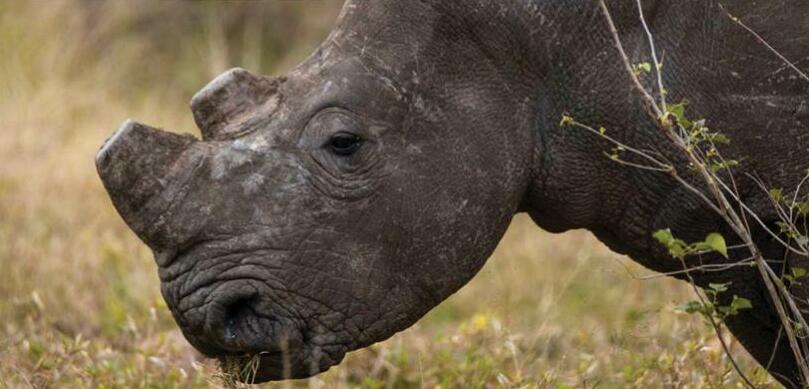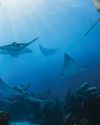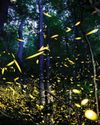
NEW RESEARCH SHOWS THAT REMOVING the horns of black rhinos to make them less attractive to poachers is reducing their territory sizes and making them less sociable with each other.
The study, published in the journal PNAS, found that de-horned South African rhinos have home ranges that are 45 percent smaller than those of intact animals, and that they were 37 percent less likely to engage in social interactions.
"The big, dominant bulls that used to have very large territories that overlapped with a lot of females may now have much less territory and much less reproductive success," says Vanessa Duthé, who led the work at Switzerland's University of Neuchâtel.
This story is from the August 2023 edition of BBC Wildlife.
Start your 7-day Magzter GOLD free trial to access thousands of curated premium stories, and 8,500+ magazines and newspapers.
Already a subscriber ? Sign In
This story is from the August 2023 edition of BBC Wildlife.
Start your 7-day Magzter GOLD free trial to access thousands of curated premium stories, and 8,500+ magazines and newspapers.
Already a subscriber? Sign In

Does cloning create identical copies?
EMBRYOS ARE MADE OF STEM CELLS that divide to give rise to different types of cells, everything from skin to brain cells. Scientists once thought that reproductive cloning creating a genetically identical copy of an individual organism - would be impossible without using stem cells and that the path leading to mature 'differentiated' cells was irreversible. But clawed frogs proved them wrong...

Tool-using animals
Our pick of 10 species that exhibit this special skill

Mission Blue
Sylvia Earle has dedicated her life to marine conservation; she tells BBC Wildlife why protecting the ocean is essential to all life on earth

RESHARK
The world's first shark rewilding initiative has seen zebra sharks released in the waters of Indonesia's Raja Ampat archipelago

ON DECK
Ferries aren't just for transport, they're also perfect vessels for conservation

IT'S A COLOURFUL LIFE
Delve into the unique and complex biology of the clownfish, arguably the world's most famous fish

BAHAMAS BENEATH
A dive into the waters of this famous island nation with the creatures that call it home

"To save the reef, we need everybody involved"
Indigenous peoples may hold the key to protecting the Great Barrier Reef

SPINNING AROUND
Going around in circles proves fruitful for this filter-feeder

BLINDED BY THE LIGHT
On balmy evenings, amorous beetles put on a spellbinding show in North American forests